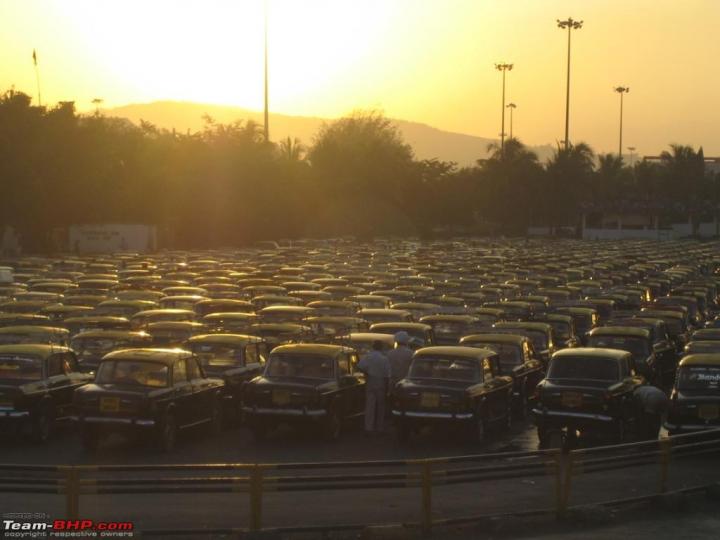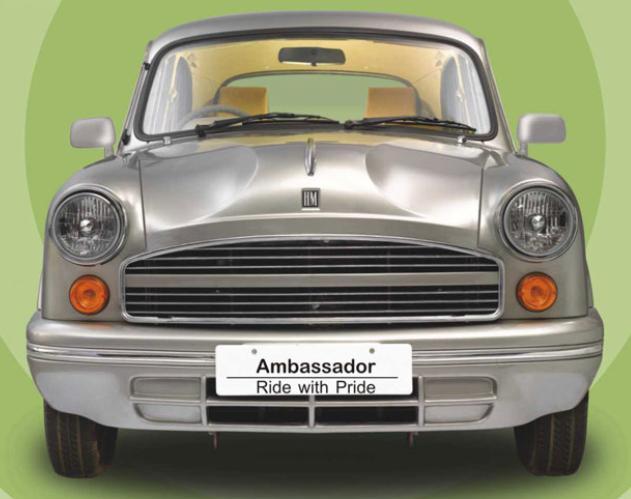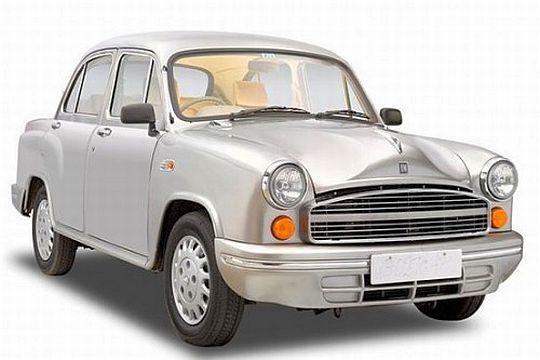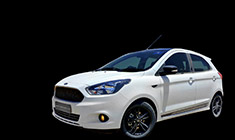News
Ambassador brand name sold to Peugeot for Rs 80 crore
Hindustan Motors has sold the Ambassador car brand to Peugeot as part of a deal worth Rs. 80 crore. This announcement comes a couple of weeks after the CK Birla Group, owners of Hindustan Motors, signed a joint venture agreement with the PSA Group, owners of Peugeot.
Based on the Morris Minor III, the Hindustan Ambassador was first launched in India in 1957. It then went on to become a favourite of the masses and was used by a variety of social sections - from taxi operators to politicians. But with new automakers entering the Indian market and with the lack of any comprehensive updates to the Ambassador, sales started to fall rapidly. Eventually, Hindustan Motors pulled the plug on the Ambassador's production in 2014.
Peugeot hasn't yet indicated any details about its plans regarding the newly acquired brand name. With the French automaker expected to enter India by 2019, it is being speculated that the company might revive the Ambassador moniker with a new offering.
News
Without doing too much, Hindustan Motors posts another loss
Hindustan Motors, India's oldest carmaker, has posted a net loss of Rs. 11.25 crore for the period April-September 2015.
In May 2014, Hindustan Motors suspended production of the Ambassador car at its Uttarpara plant. The company had declared itself a sick unit to the Board for Industrial and Financial Reconstruction (BIFR).
The company cited worsening conditions at the plant including very low productivity, growing indiscipline, critical shortage of funds, lack of demand for the Ambassador and large accumulation of liabilities for stoppage of production.
For the year 2014-15, the company recorded a loss of Rs. 41.90 crore. While it had accumulated losses of Rs. 201.01 crore till March 31, 2015, it had a share capital of Rs. 104.41 crore. The company’s current liabilities exceeded the current assets by Rs. 73.66 crore.
Hindustan Motors also went on to declare lay-offs at its Pithampur plant later in the year.
In a note to the accounts, Hindustan Motors has said "These condition indicate the existence of material uncertainty about the company's ability to continue as a going concern."
Source: Business Line
News
Hindustan Motors halts Ambassador production
India's oldest automaker, Hindustan Motors has suspended work at its plant at Uttarpara, West Bengal. This could mean the end of the road for the Ambassador car, which has been in production at the facility since 1957. The suspension of operations at the plant will affect the lives of 2,500 workers who will be rendered jobless.
The move comes after the company cited worsening conditions at the plant including very low productivity, growing indiscipline, critical shortage of funds, lack of demand for the Ambassador and large accumulation of liabilities. The company's net worth had been completely wiped out and it had declared itself a sick unit to the Board for Industrial and Financial Reconstruction (BIFR).
The Ambassador, which was based on the British Morris Oxford, was having its work cut out keeping up with more modern products in the Indian auto market. As a result, the sales of the car were dropping year after year. In the recent past, the biggest buyers of the car were the Government and taxi operators. But with Government officials opting for more modern machinery, and taxi operators in most cities also moving away, the Ambassador's days were numbered. Hindustan Motors managed to sell just over 2,200 units of the car in 2013-14, far cry from the 24,000 units it sold annually in the 1980s.
News
Fiat Premier Padmini Taxis begin going off Mumbai roads
Black and yellow garbed Premier Padmini taxis have been an indelible part of the Mumbai urban scape for nearly 5 decades. These cars, built by Premier Automobiles Limited, under license from Fiat, at the Kurla factory in Mumbai have been ferrying commuters in the economic capital of the country even in the face of modern competition. A recent rule made by the Maharashtra government, ousting all taxis older than 20 years off Mumbai roads has meant that black and yellow Fiat cabs will begin rolling off city streets.
The permits for taxi-cabs older than 20 years old will not be renewed in Mumbai, in what seems to be a move aimed at reducing air pollution levels in the city. Older vehicles, especially those used for commercial purposes as goods and people movers, are known to emit higher levels of tail pipe emissions than new vehicles. Many Indian cities have been actively legislating for the non-issuance of yearly permits to older commercial vehicles in order to reduce air pollution levels.
The Premier Padmini, initially known as the Fiat 1100 D, was based on the Fiat 1200 GrandLuce Berlina. The car began production at Premier's Kurla factory in 1964. The last Premier Padmini rolled off the assembly line in the year 2000. This means that the Premier Padmini has been around on Mumbai roads for a full 49 years since the commencement of production. At its peak, nearly 62,000 Premier Padmini taxis plied on Mumbai's, then known as Bombay, roads.
Now though, the advent of newer cars such as the Maruti Omni, WagonR and the Alto has meant that the Premier Padmini taxis have been slowly relegated to scrap yards and collector lists. Currently, there are about 9,500 Premier Padmini taxis operating in Mumbai, a number that is expected to fall to 4,500 by the end of the year as the older taxis go off the road. Next year, more Premier Padmini taxis will begin going off the road and over the next few years, the last of these iconic symbols of Mumbai will cease to operate.
According to report carried by the LiveMint, a similar fate awaits the Hindustan Ambassador in Kolkata as the government of the day in the state of West Bengal has decided to allow other car makers to ply their wares in the meter taxi market. While Tata Motors's Indigo and Maruti Suzuki's WagonR car models have already been allowed to operate as meter-taxis in Kolkata, the government's latest move to open up this market is expected to see more involvement from car makers seeking to make inroads into the meter-taxi segment of one of India's oldest metropolitan cities.
News
Hindustan Ambassador compact sedan lined up for 2013-end
Later this year, C.K. Birla group owned Hindustan Motors will launch a new variant of the Ambassador, in the form of a compact sedan version. The Ambassador compact sedan will be launched by the end of 2013. According to details carried by the TimesOfIndia, the Ambassador compact sedan will sport a length of under 4 meters, thereby allowing it to be classified as a small car under the Indian government's norms.
Note: Images of the Hindustan Ambassador in this report have been used for illustrative purposes.
In India, cars measuring under 4 meters in length, with a petrol engine capacity under 1.2 liters and a diesel engine capacity under 1.5 liters, qualify for lower excise. The idea behind the lower excise for compact cars is to minimize congestion and give manufacturers an incentive to build more fuel efficient cars. These norms have prompted car makers to launch a new sub-segment of cars dubbed compact sedans.
The Tata Indigo eCS, a shortened version of the Indigo sedan, was the first compact sedan to be launched in India. Since then, Maruti Suzuki has launched a sub-4 meter Dzire, followed by Honda launching the Amaze. So, the compact sedan variant of the Ambassador will be the fourth such product to be launched in India. The compact sedan variant could use the new, BS-4 compliant turbo diesel engine that Hindustan Motors has developed with Austrian major Magna Steyr.
Apart from the new compact sedan variant, the Ambassador will get a revamp in 2014. The revamped car will be based on the existing Ambassador platform, but is touted to come with many more features. Also, the new Ambassador will be given an once over in terms of looks in order to appeal to younger car buyers. More details about the revamped Ambassador variant are expected to be revealed in the coming months.
Recently, Hindustan Motors invited media and dealer contingents to sample the BS-4 diesel engined Ambassador. While the car's petrol and CNG variants are compliant with BS-4 emission norms, the diesel engined Ambassador variant is not. So, the diesel variants of the car cannot be sold in bigger Indian cities, which have already migrated to BS-4 emission norms. Hence, the launch of the BS-4 emission norms-compliant, turbo diesel engined model is expected to boost sales of the car.
The new, turbo diesel engined version of the Ambassador will be launched in the coming months. Notably, the Ambassador has been crowned the world's best taxi in a Top Gear shootout, with the car edging out rivals from across the globe. The Ambassador is built at Hindustan Motors's Uttarpara factory, in West Bengal. The Ambassador, which began life as the Morris Oxford in the United Kingdom, has been in serial production in India since 1958. Over 6 generations of the instantly recognizable car have been sold in India, and the Ambassador has come to become an indelible part of the Indian automotive landscape.
- Tags:
- Indian
- Hindustan Ambassador
Pages



_29.jpg)






